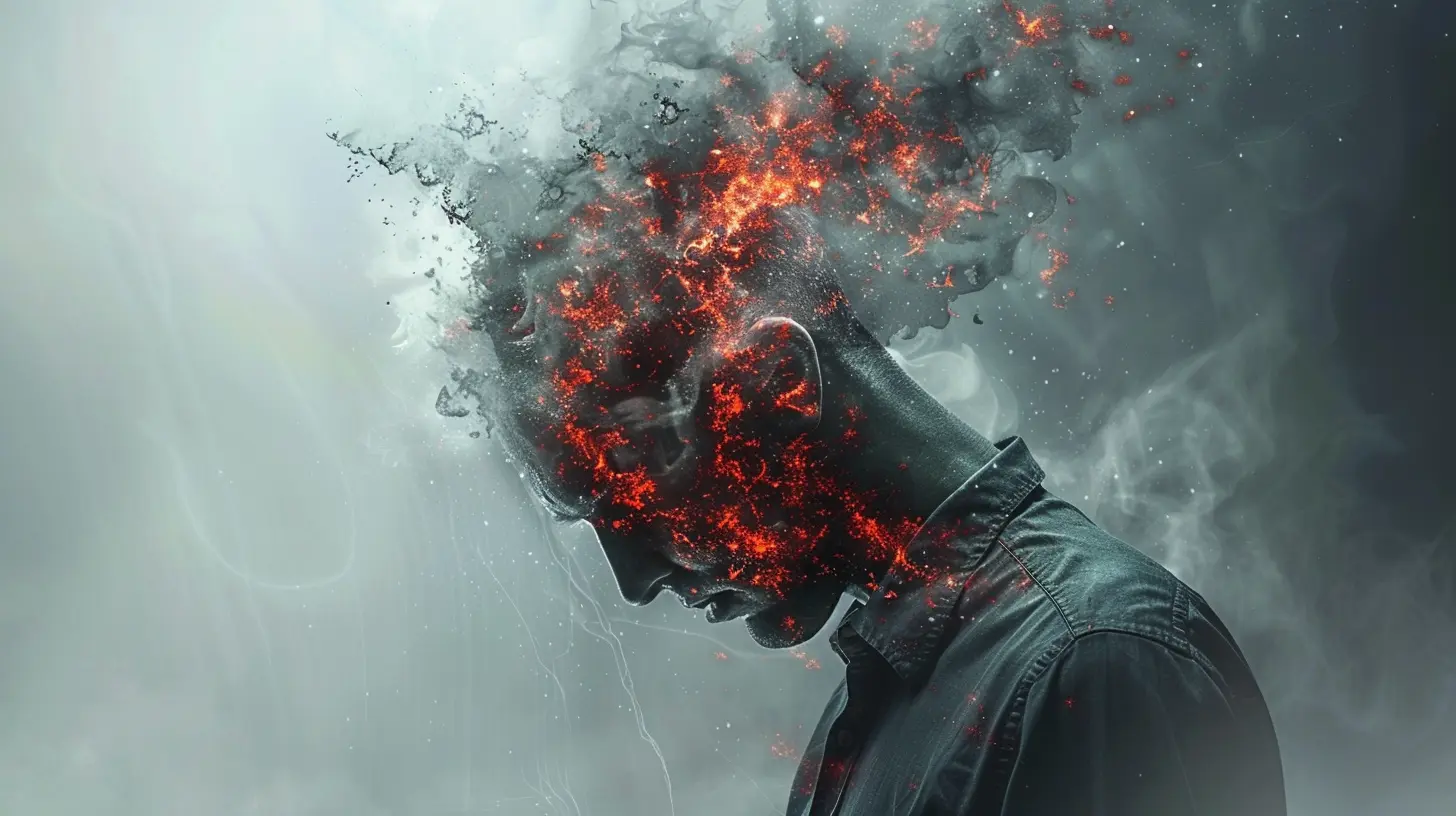Exploring the Effects of Chronic Pain on Mental Health
17 October 2025
Chronic pain isn’t just about physical discomfort—it can feel like an invisible weight that drags your entire life down. If you've ever dealt with ongoing pain, you know it’s not just your body that suffers. Your mind takes a serious hit too.
But why is that? And how do chronic pain and mental health intertwine in such a complex way? Let’s dive deeper into the connection between chronic pain and mental well-being, the psychological toll it takes, and ways to cope.

Understanding Chronic Pain
Chronic pain is any type of pain that sticks around for more than three months. Unlike acute pain (which comes and goes after an injury heals), chronic pain persists long after the source is treated—or sometimes even when doctors can’t pinpoint a clear cause.Conditions like arthritis, fibromyalgia, migraines, back pain, and nerve damage are just a few common culprits. And when pain becomes a constant companion, it starts to affect more than just your body—it seeps into your emotions, thoughts, and overall well-being.

The Link Between Chronic Pain and Mental Health
It’s no surprise that living with ongoing pain can mess with your mental health. Pain takes center stage in your life, making it hard to focus on anything else. But why does this happen?Here’s the harsh truth: chronic pain rewires your brain. Studies show it affects the same areas that regulate emotions, which explains why so many people with chronic pain also battle depression, anxiety, and stress.
Let’s break this down further.
1. Depression and Chronic Pain
Imagine waking up every day knowing that pain is going to be there, no matter what you do. Over time, this can lead to feelings of hopelessness and despair.In fact, people with chronic pain are three times more likely to develop depression. That’s a scary statistic, but it makes sense. Pain drains your energy, limits activities you once loved, and isolates you from friends and family.
It’s a vicious cycle—pain triggers depression, and depression, in turn, makes the pain feel worse. Why? Because depression lowers your pain tolerance and increases inflammation in the body. It’s like adding fuel to an already raging fire.
2. Anxiety and Chronic Pain
Chronic pain and anxiety go hand in hand. When you’re in pain 24/7, it’s hard not to worry about the future.- "Will this ever get better?"
- "What if it gets worse?"
- "How will I handle my daily responsibilities?"
This kind of constant worry can lead to chronic anxiety. Your nervous system stays in "fight or flight" mode, making you feel tense, restless, and on edge. And the more anxious you feel, the more sensitive your body becomes to pain. Again, it’s a never-ending loop.
3. Sleep Disruptions
Ever try to sleep while you're in pain? It’s nearly impossible. Even if you manage to fall asleep, pain can wake you up throughout the night.Poor sleep fuels mood disorders, increases your perception of pain, and makes it harder to cope with daily life. It’s no wonder that many people with chronic pain suffer from insomnia, making everything feel even worse.
4. Social Isolation and Loneliness
Constant pain can make socializing feel like a chore. Maybe you cancel plans because you're not feeling well. Maybe family and friends don’t understand what you're going through. Over time, this isolation leads to loneliness, which is a huge risk factor for both depression and anxiety.Many people with chronic pain report feeling "trapped" in their own bodies, unable to live life the way they used to. This emotional toll can be just as devastating as the physical pain itself.

Coping Strategies to Improve Mental Health
If chronic pain is taking a toll on your mental health, you're not alone—and more importantly, you're not powerless. While there’s no magic cure, there are ways to manage your emotions and improve your quality of life.1. Seek Professional Help
Therapists, pain specialists, and support groups can be lifesavers. Cognitive Behavioral Therapy (CBT), for example, helps reshape negative thought patterns that make pain feel worse. A trained professional can give you practical tools to help manage both the physical and emotional effects of chronic pain.2. Move Your Body (Even When You Don’t Feel Like It)
Exercise might sound like the last thing you want to do when you're in pain, but gentle movement can actually help. Activities like yoga, stretching, swimming, or even short walks release endorphins—your body’s natural painkillers. Plus, exercise reduces stress and improves mood.3. Practice Mindfulness and Meditation
Mindfulness trains your brain to focus on the present moment rather than dwelling on pain and discomfort. Meditation, deep breathing, and guided imagery can help reduce stress and promote relaxation.4. Get Enough Rest
Since sleep and chronic pain are so closely linked, making sleep a priority is crucial. Try to:- Stick to a consistent sleep schedule
- Avoid screens before bedtime
- Use relaxation techniques to calm your mind
- Invest in a comfortable mattress and pillows
5. Stay Connected
Even when you feel like isolating yourself, try to reach out to someone—a friend, family member, or even an online support group. Talking about your struggles with people who understand can be incredibly healing.6. Nutrition and Hydration Matter
Your diet plays a role in how you feel. Anti-inflammatory foods like leafy greens, nuts, fatty fish, and turmeric can help reduce pain levels. Also, staying hydrated ensures your body functions properly and can help decrease muscle stiffness.
Final Thoughts
Chronic pain isn't just a physical issue—it deeply affects your mental well-being, too. Living with persistent pain can lead to depression, anxiety, sleep disturbances, and social withdrawal. But here's the good news: while chronic pain may feel like it's controlling your life, small, consistent steps can help you take that control back.If you or someone you love is struggling, don’t hesitate to reach out for support. No one should have to suffer in silence. With the right help and coping strategies, better days are possible.
all images in this post were generated using AI tools
Category:
Psychological ResearchAuthor:

Nina Reilly
Discussion
rate this article
1 comments
Lyra Webster
Pain's sly mental dance!
October 24, 2025 at 2:46 PM

Nina Reilly
Thank you! Chronic pain does create a complex interplay with mental health, often leading to a challenging "dance" of emotional responses.


